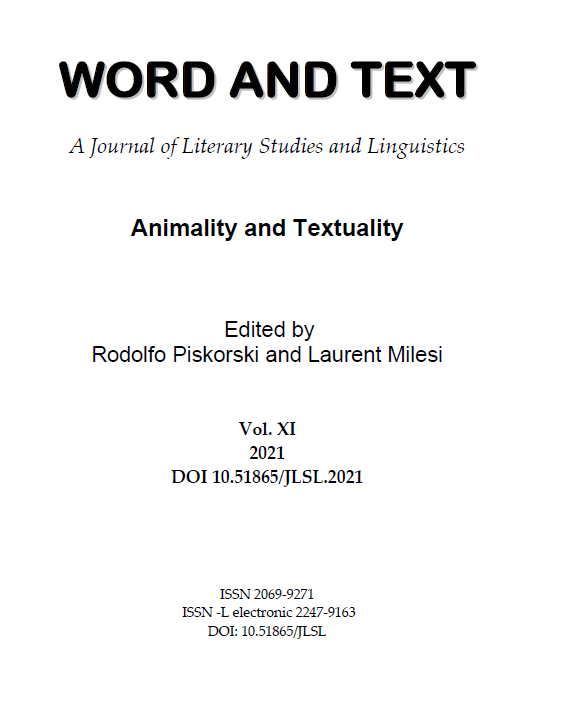Animality and Textual Experimentalism in João Guimarães Rosa’s "My Uncle, the Jaguar"
Animality and Textual Experimentalism in João Guimarães Rosa’s "My Uncle, the Jaguar"
Author(s): Ana Carolina TorquatoSubject(s): Fiction, Aesthetics, Semantics, Comparative Study of Literature, Other Language Literature, Theory of Literature, Rhetoric
Published by: Universitatea Petrol-Gaze din Ploieşti
Keywords: zoopoetics; language; animality; metamorphosis; human-animal relationships; Brazilian literature; João Guimarães Rosa;
Summary/Abstract: This article analyses how form and content are intertwined in the story My Uncle, the Jaguar (1961) by Brazilian writer João Guimarães Rosa. In the first part, I use the fourteenth episode of Ulysses (1920), ‘Oxen of the Sun’, as an example of how language and form can convey ideas. The next section deals with Rosa’s efforts to create a character-narrator who seems to be on the verge of becoming-animal. The character’s transformation into a jaguar-like being is ambiguous, seeming to be both psychological and behavioural. In this sense, there is no evidence whether his metamorphosis is physical. However, the language of the narrative conveys his transformation, transcending him from Portuguese to Tupi-Guarani, to an animal snarling onomatopoeic language. To support my argument, I use a theoretical framework derived from Animal Studies and Anthropological Studies as a means of giving a better explanation of the variable cultural background concerning human-animal relationships.
Journal: Word and Text, A Journal of Literary Studies and Linguistics
- Issue Year: XI/2021
- Issue No: 1
- Page Range: 187-200
- Page Count: 14
- Language: English

